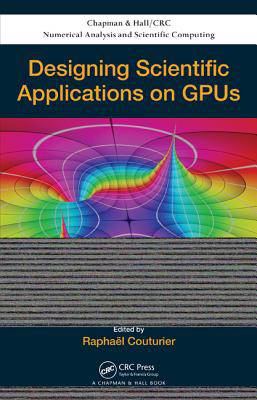
- Retrait gratuit dans votre magasin Club
- 7.000.000 titres dans notre catalogue
- Payer en toute sécurité
- Toujours un magasin près de chez vous
- Retrait gratuit dans votre magasin Club
- 7.000.0000 titres dans notre catalogue
- Payer en toute sécurité
- Toujours un magasin près de chez vous
Designing Scientific Applications on GPUs
Description
Many of today's complex scientific applications now require a vast amount of computational power. General purpose graphics processing units (GPGPUs) enable researchers in a variety of fields to benefit from the computational power of all the cores available inside graphics cards.
Understand the Benefits of Using GPUs for Many Scientific Applications
Designing Scientific Applications on GPUs shows you how to use GPUs for applications in diverse scientific fields, from physics and mathematics to computer science. The book explains the methods necessary for designing or porting your scientific application on GPUs. It will improve your knowledge about image processing, numerical applications, methodology to design efficient applications, optimization methods, and much more.
Everything You Need to Design/Port Your Scientific Application on GPUs
The first part of the book introduces the GPUs and Nvidia's CUDA programming model, currently the most widespread environment for designing GPU applications. The second part focuses on significant image processing applications on GPUs. The third part presents general methodologies for software development on GPUs and the fourth part describes the use of GPUs for addressing several optimization problems. The fifth part covers many numerical applications, including obstacle problems, fluid simulation, and atomic physics models. The last part illustrates agent-based simulations, pseudorandom number generation, and the solution of large sparse linear systems for integer factorization. Some of the codes presented in the book are available online.
Spécifications
Parties prenantes
- Editeur:
Contenu
- Nombre de pages :
- 498
- Langue:
- Anglais
- Collection :
- Tome:
- n° 21
Caractéristiques
- EAN:
- 9781466571624
- Date de parution :
- 21-11-13
- Format:
- Livre relié
- Format numérique:
- Genaaid
- Dimensions :
- 157 mm x 236 mm
- Poids :
- 816 g

Les avis
Nous publions uniquement les avis qui respectent les conditions requises. Consultez nos conditions pour les avis.





